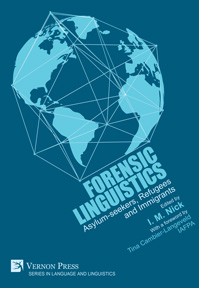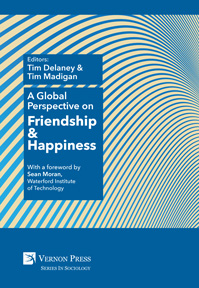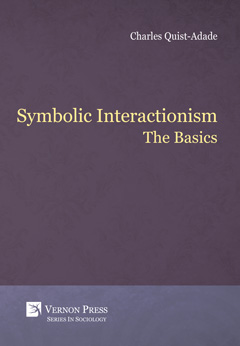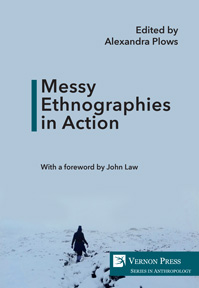Search
Browse
by Publication status
by Subject
Anthropology (26) Art (171) Business and Finance (38) Cognitive Science and Psychology (63) Communication and Journalism (51) Economics (116) Education (71) History (168) Human Geography (23) Interdisciplinary (43) Language and Linguistics (178) Law (16) Music Studies (18) Philosophy (222) Political Science and International Relations (127) Sociology (402) Statistics and Quantitative Methods (21)by Series
Series in Literary Studies (62) Series in Philosophy (57) Series in Education (49) Series in Sociology (42) Series in World History (31) Series in Politics (30) Bridging Languages and Scholarship (25) Series in Language and Linguistics (25) Cognitive Science and Psychology (20) Series in Philosophy of Religion (20) Series in American History (19) Series in Art (19) Critical Perspectives on Social Science (16) Series in Cinema and Culture (16) Curating and Interpreting Culture (15) Series on the History of Art (14) Series in Anthropology (13) Series in Critical Media Studies (13) Economics (13) Series in Business and Finance (12) Series in Music (12) Series in Performing Arts (9) Philosophy of Personalism (8) Series in Communication (8) Series in Law (8) Series in Economic Methodology (7) Series on Climate Change and Society (7) Classics in Economics (6) Series in Economic Development (6) Women's Studies (6) Philosophy of Forgiveness (5) Series in Built Environment (5) Series in Economic History (5) Series in Philosophy of Science (4) Series in Social Equality and Justice (4) Series on the History of Science (4) Serie en Sociología (3) Series in Contemporary History (3) Series in Creative Writing Studies (3) Series in Design (3) The Interdisciplinary Built Environment (3) Series in Heritage Studies (2) Series in Innovation Studies (2) Serie en Ciencias Políticas (1) Serie en Comunicación y Medios (1) Serie en Entorno Construido (1) Serie en Estudios Culturales (1) Serie En Estudios Literarios (1) Serie en Filosofía (1) Serie en Música (1) Series in Classical Studies (1) Series in Economics of Technological Change (1) Series in Philosophy of Race (1) Series in Urban Studies (1)by Language
English Spanishby Author
Browsing with filters
Forensic Linguistics
Asylum-seekers, Refugees and Immigrants
Edited by
Iman Nick, Germanic Society for Forensic Linguistics (GSFL)
Availability: In stock
230pp. ¦ $60 £43 €48
According to international statistics, the world is currently undergoing one of the largest refugee catastrophes in modern history. This humanitarian crisis has stimulated the mobilization of countless private and public rescue and relief efforts. Yet, deep-seated concerns over potential breaches of national security and wide-spread fears over uncontrolled mass immigration have prompted many policy-makers to caution against the unregulated entry of foreigners with little or no identity documentation. In an effort to strike a balance between addressing the needs of these two competing sets of concerns, an increasing number of governments have instituted policies and procedures for identity verification. In this multi-authored work, the focus is placed upon the widespread governmental use of language analyses to investigate displaced persons’ registered origins. This dynamic collection of writings provides readers with a thought-provoking, politically-stimulating, intellectually challenging examination of the pitfalls and promise of these practices across differing sociopolitical, legal, linguistic, and geographical contexts. This contextual diversity reflects the unique strength of this reference work. Unlike so many other publications on the market that focus rigidly upon a single vantage point, this work offers a dynamic exploration of the theory and practice of language analysis for governmentally-mandated identification procedures. From the linguistic scholar to the human rights activist, the agency worker to the asylum-seeking applicant, this collection offers a complex and rich cross-section of professional and personal experiences. The multiplicity of perspectives is powerfully complemented by the heterogeneity of disciplines represented in this work. From sociology, psychology, demography, and language policy to linguistics, ethics, international affairs, government and politics, this work will satisfy a wide variety of readers’ scholarly interests and commensurately serves as an excellent reference work for researchers and practitioners as well as a valuable teaching resource for graduate and undergraduate courses.
Answering the New Atheists: How Science Points to God and to the Benefits of Christianity
Anthony Walsh, Boise State University
Availability: In stock
208pp. ¦ $59 £42 €48
In the face of increasing attacks on Christianity by militant new atheists, Christians should be able to robustly defend their beliefs in the language spoken by Christianity’s detractors—science. Atheists claim that science and religion are incompatible and in constant conflict, but this book argues that this is assuredly not true. In order to rebut the polemic agenda of the new atheists who want God banned from the public square, this book engages with the physical and natural sciences, social science, philosophy, and history. It shows that evidence from these diverse disciplines constitutes clear signposts to God and the benefits of Christianity for societies, families, and individuals. Answering the New Atheists begins by examining what new atheism is, before demolishing its claim that Christianity is harmful by showing the many benefits it has for freedom and democracy, morality, longevity, and physical and mental health. Many historians of science contend that science was given its impetus by the Christian principle that a rational God wants us to discover his fingerprints on nature. Thus, in subsequent chapters, Walsh presents a well-informed and philosophical-based analysis of the Big Bang and cosmic fine-tuning, the unimaginable improbability of factors that make this planet habitable, and the multiverse often called the “last refuge of the desperate atheist.” Interdisciplinary in its approach, this book adeptly explores the very problematic issues of the origin and evolution of life that have forced many top-rate scientists including Nobel Prize winners, who have thought deeply about the philosophical meaning of their work, to accept God as the Creator of everything.
A Global Perspective on Friendship and Happiness
Edited by
Tim Madigan, St. John Fisher College in Rochester, New York and Bertrand Russell Society
and Tim Delaney, State University of New York at Oswego
Availability: In stock
206pp. ¦ $59 £42 €48
In A Global Perspective on Friendship and Happiness, editors Tim Delaney and Tim Madigan have organized a collection of original articles on the subjects of friendship and happiness. Each of these chapters offers a unique perspective and serves as worthy contributions to the field of friendship and happiness studies. The chapters found in this publication are the result of the "Happiness & Friendship" conference held June 12-14, 2017 at Mount Melleray Abbey, Waterford, Ireland. The contributing authors come from many diverse countries and academic disciplines thus enhancing this outstanding volume.
Symbolic Interactionism: The Basics
Charles Quist-Adade, Kwantlen Polytechnic University, Canada
Availability: In stock
218pp. ¦ $60 £42 €48
This book is a survey of Symbolic Interaction. In thirteen short chapters, it traces the history, the social philosophical roots, the founders, “movers and shakers” and evolution of the theory. Symbolic Interactionism: The Basics takes the reader along the exciting, but tortuous journey of the theory and explores both the meta-theoretical and mini-theoretical roots and branches of the theory. Symbolic interactionism or sociological social psychology traces its roots to the works of United States sociologists George Hebert Mead, Charles Horton Cooley, and Herbert Blumer, and a Canadian sociologist, Erving Goffman; Other influences are Harold Garfinkel’s Ethnomethodology and Austrian-American Alfred Schutz’s study of Phenomenology. Symbolic Interactionism: Basics explores the philosophical sources of symbolic interactionism, including pragmatism, social behaviorism, and neo-Hegelianism. The intellectual origins of symbolic interactions can be attributed to the works of William James, George Simmel, John Dewey, Max Weber, and George Herbert Mead. Mead is believed to be the founder of the theory, although he did not publish any academic work on the paradigm. The book highlights the works of the intellectual heirs of symbolic interactionism— Herbert Blumer, Mead’s former student, who was instrumental in publishing the lectures his former professor posthumously with the title Symbolic Interactionism, Erving Goffman and Robert Park.
Messy Ethnographies in Action
Edited by
Alexandra Plows, Bangor University
Availability: In stock
216pp. ¦ $59 £43 €48
This edited collection of chapters showcases original and interdisciplinary ethnographic fieldwork in a range of international settings; including studies of underground pub life in North East England; Finnish hotels; and bio-scientific institutions in the Amazonian rainforest. Informed by John Law’s concept of ethnographic “mess,” this book makes a unique, empirically-informed, contribution to an understanding of the social construction of knowledge and the role that ethnography can and does play (Law, 2004). It provides a range of colourful snapshots from the field, showing how different researchers from multiple research environments and disciplines are negotiating the practicalities, and epistemological and ethical implications, of “messy” ethnographic practice as a means of researching “messy” social realities. Law notes that “social…science investigations interfere with the world…things change as a result. The issue, then, is not to seek disengagement but rather with how to engage” (ibid p14). Drawing on their own situated experiences, the book’s contributors address the “messy” implications of this and also explore the (equally messy) issue of why engage. They reflect on the process of undertaking research, and their role in the research process as they negotiate their own position in the field. What is ethnography “for”? What impact should, or do, we have in the field and after we leave the research site? What about unintended consequences? When (if ever) are we “off duty?” What does “informed consent” mean in a constantly shifting, dynamic ethnographic context? Is ethnography by its very nature a form of “action research?” By providing a wide range of situated explorations of “messy ethnographies,” the book presents a unique, hands-on guide to the challenges of negotiating ethnography in practice, which will be of use to all researchers and practitioners who use ethnography as a method.






